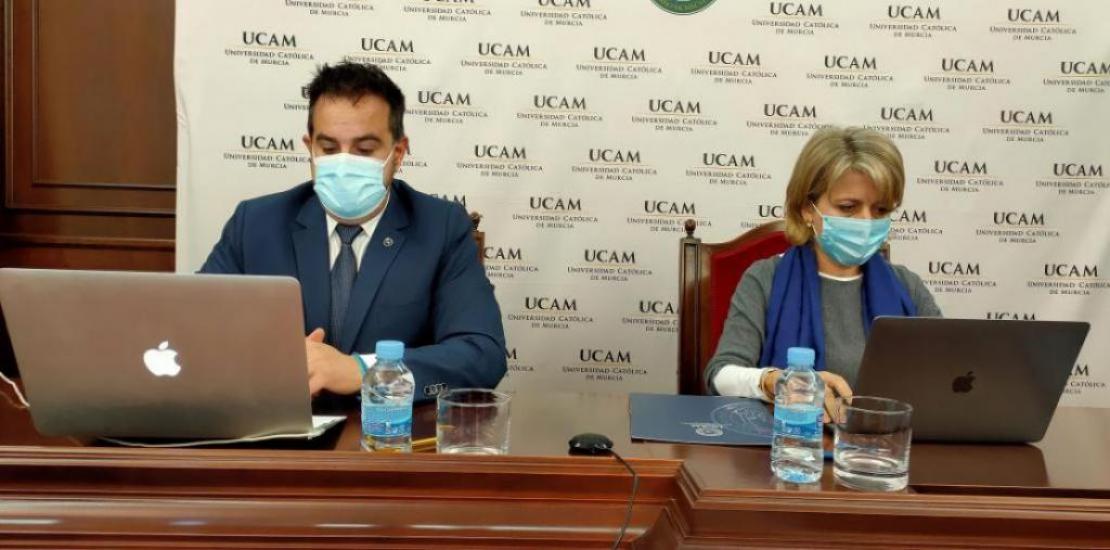Investing in physical exercise would entail a substantial saving on health expenditure
The ‘Life Age’ European Project, led by UCAM, ends with an international ‘online’ meeting in which the benefits of physical activity for the improvement of the quality of life of older people are highlighted
UCAM Universidad Católica de Murcia hosts, today and tomorrow, the International ‘Life Age’ Conference: Exercise Prescription for an Active and Healthy Ageing which is the final step of the European Project led by UCAM itself and that saw the participation of universities from Spain, Italy, Finland, Latvia and Ireland. Due to the coronavirus pandemic, this meeting is being held ‘online’. The event is organised by the Faculty of Sports, with the collaboration of the Vice-chancellorship for Research and of the International Project Office (OPRI) of UCAM, and with the collaboration of the ‘Healthy Age’ research network promoted by the Higher Sports Council and led by the Research Group on Health, Physical Activity, Fitness and Motor Behaviour (GISAFFCOM).
Pablo Jorge Marcos, main researcher of the project, highlighted the need to keep working for the promotion of physical exercise among elderlies to prevent illnesses that are typical of sedentary lifestyle and physical inactivity: “People who are more active do not suffer from health problems such as sarcopenia (loss of muscle mass), osteoporosis or cholesterol and they are less likely to suffer from certain chronic diseases”.
For this reason, he insisted on the fact that an inversion on these types of projects should not be seen as an expense: “We all want to live longer, but we must do that in the best possible way. The ageing of the population causes a lot of expenditure at a sanitary level and there is scientific evidence that a physically active person generates a lower health expenditure in terms of drugs intake and hospital resources. By investing on exercise we will save about three and five times the health expense”.
Estrella Núñez, vice-chancellor for research, has highlighted the role that universities must play when it comes to providing an answer to all the important problems of society: “Within just 35 years, the population composed of people over the age of 60 will double. In Spain, our life expectancy is of 83 years, and in 2060 it will be of about 90 years. Are we ready for that? It is necessary to define strategies with data that are perfectly evaluated by the community”.
Pablo Jorge Marcos and Estrella Núñez opened the conference together with Antonio Sánchez Pato, dean of the Faculty of Sports, and Fabio Pigozzi, president of the International Federation of Sports Medicine and recipient of a Doctor Honoris Causa degree by UCAM.




